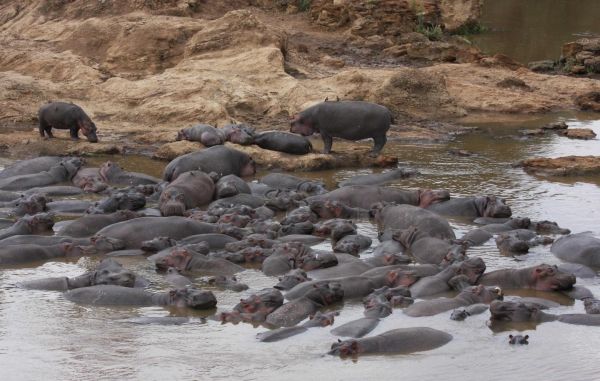Ecologists have long known that agricultural and sewage pollution can cause low oxygen conditions and fish kills in rivers. A study published today in Nature Communications reports that hippo waste can have a similar effect in Africa’s Mara River, which passes through the world renowned Maasai Mara National Reserve of Kenya, home to more than 4,000 hippos.
Co-author Emma Rosi, a Freshwater Ecologist at the Cary Institute of Ecosystem Studies, explains, “Together, the Mara’s resident hippos add about 8,500 kg – or 9.3 tons – of partially digested plant material into the river each day. We were interested in how this massive influx of organic matter and nutrients influenced aquatic life.”
Hippos spend their nights grazing in the savanna and their days wallowing in shallow pools to keep cool and escape the sun. As they wallow, they excrete waste, which depletes oxygen from the water as it decomposes. Microbial activity also produces chemicals like ammonium and sulfide, known to be toxic to fish.
“During dry periods, oxygen-poor water accumulates in hippo pools. Periodic intense rains eventually flush the water downstream. This sudden pulse of deoxygenated water can cause temporary hypoxia and fish kills,” notes Rosi.
Read more at Cary Institute of Ecosystem Studies
Image: A hippo pool on the Kenyan reach of Africa's Mara River. These pools concentrate hippo waste that is flushed downriver during heavy rain events. (Credit: Christopher Dutton)


